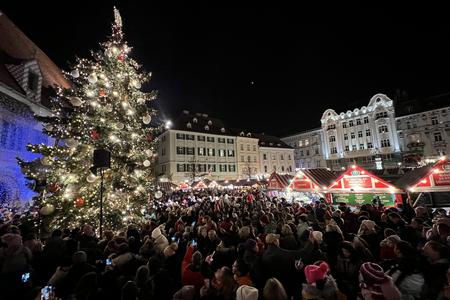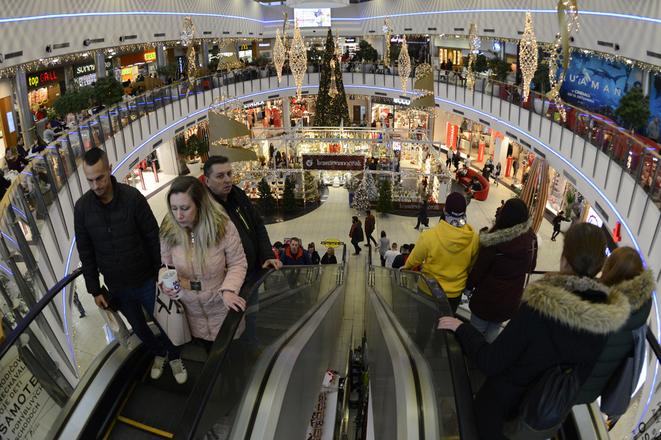With Christmas just around the corner, analysts are forecasting that Slovaks will pay more for Christmas food and gifts this year.
“We estimate that Slovak households will pay roughly 8-10 percent more for this year’s pre-Christmas food purchases than they did last year,” Wood & Company analyst Eva Sadovská wrote in a memo.
Strong final quarter
The last quarter is traditionally the strongest period of the year for retail sales, accounting for up to 28 percent of full year figures. However, inflation has been high this year with several food items seeing double-digit growth rates.

Of the gifts that people most often buy for their loved ones, personal care products are currently more expensive than a year ago, up 8.4 percent, prices of musical instruments are 7.7 percent higher, and jewellery is up 7 percent. Clothes are 5.7 percent more expensive, and Slovaks are paying 5.4 percent more for books. Prices of cameras, coffee machines, computers, sports equipment, shoes, bicycles, and toys have risen by 2-4.5 percent. Mobile phones and watches saw the slowest price increases among typical gifts, up 1.6 percent and 1.1 percent, respectively.
“For many households, current price increases are literally devastating,” the analyst says.
People are saving money when shopping, preferring essential goods to more luxurious ones, or cheaper to more expensive ones. Those most affected are mainly low-income households, households with unemployed members, single parents with children, seniors, and households with physically impaired members, said Sadovská.
Less presents under Christmas tree
Almost half of Slovaks will spend less on Christmas presents for their loved ones this year than in the past, according to research. A fifth of people are waiting for discounts and one in 10 will not buy any gifts, a survey conducted by STEM/MARK for Home Credit Slovakia at the end of October and the beginning of November indicated.
“When asked what impact high inflation will have on gift shopping, up to 46 percent of respondents said they would spend less than in the past,” said Jaroslav Ondrušek, the company’s market analyst.
On the other hand, 20 percent of Slovaks are not limited by rising prices in their pre-Christmas shopping. The same number of respondents are waiting for sales, and some of them bought gifts in advance because they think that they would be more expensive just before Christmas, noted Ondrušek.
The most common gift this Christmas will be clothes, which, according to the survey will be given to half of Slovaks. This is followed by cosmetics (43 percent), books (40 percent), small gift items (29 percent) and electronics (20 percent). Almost a fifth (19 percent) will receive cash and slightly less (17 percent each) sports equipment or gift packages.
The survey also shows that 26 percent of respondents will spend less than €40 on gifts for one household member. Another 21 percent will spend twice as much and 17 percent three times as much. On the other hand, some will spend much more, with 3 percent of respondents spending more than €400.



 Slovaks plan to save on Christmas this year. (source: TASR)
Slovaks plan to save on Christmas this year. (source: TASR)